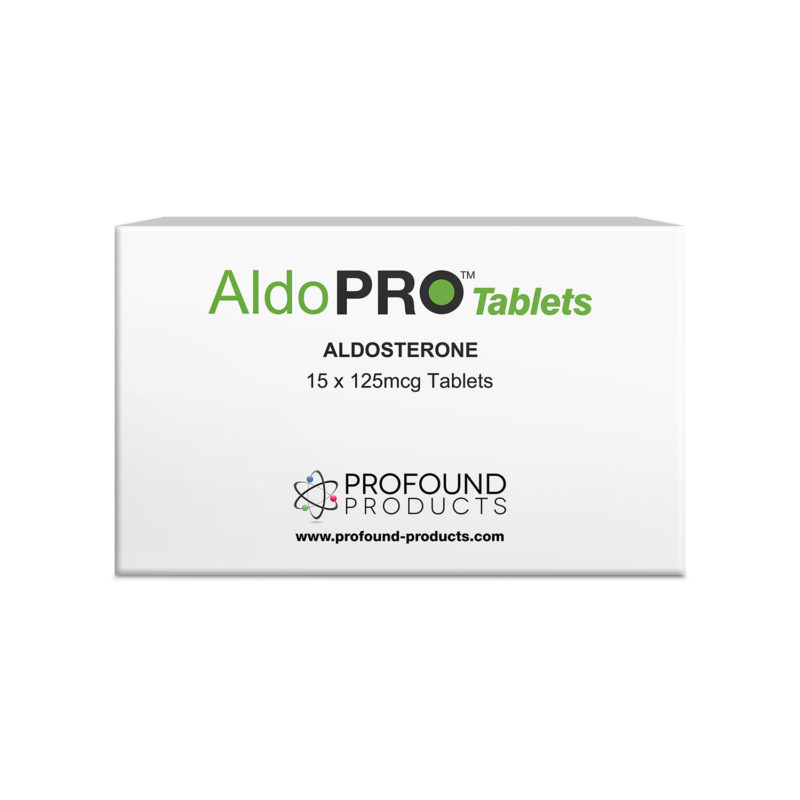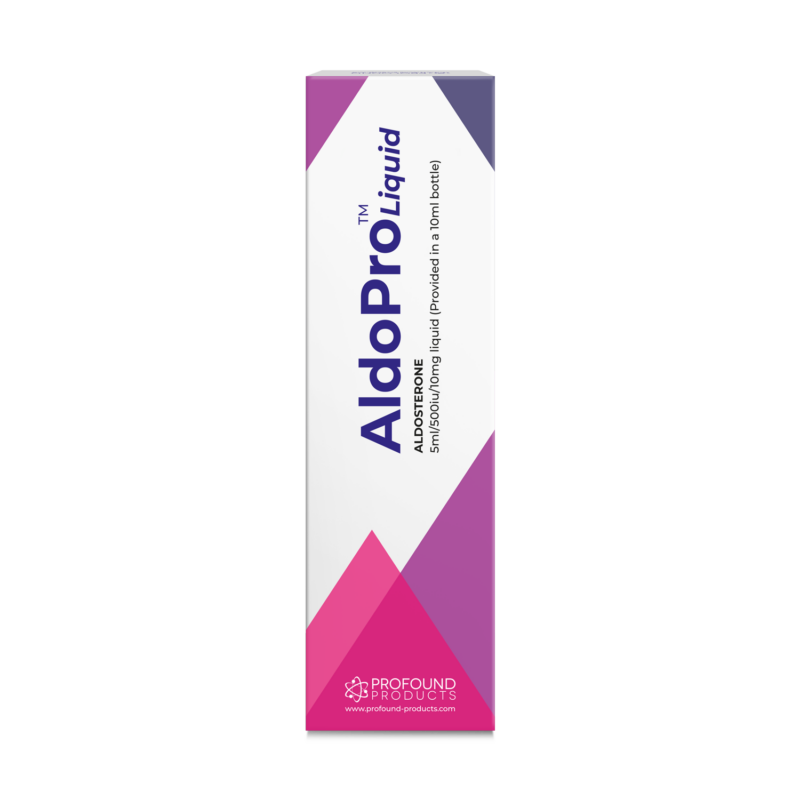
Aldosterone (AldoPro™)
Aids balance and hearing
Aldosterone is a hormone known to regulate essential salts and blood pressure in the body. Aldosterone secretion may also hold the key to loss of hearing.
Aldosterone’s important role in maintaining the body’s delicate balance of water and essential salts impacts our blood pressure health.
As a treatment for hearing loss, Aldosterone also offers a viable alternative to hearing aids and surgery.
This product features in the
following categories
This product has the
following ingredients
This product is associated with the following health conditions
Addison’s disease Adrenal Fatigue Cortisol Alteration Hearing disorders Low Estrogen Levels Requiring HRT MenopauseProduct Description
Aldosterone: the natural treatment for hearing loss and healthy blood pressure levels
The hormone Aldosterone is known to regulate essential salts and blood pressure in the body, but Aldosterone secretion may also hold the key to loss of hearing.
The body’s sodium (salt), potassium and water levels are kept in equilibrium through aldosterone secreted by the adrenal gland. Known as the body’s electrolytes, these same essential salts may be a factor in hearing loss. This is because sodium and potassium levels – regulated as we know by Aldosterone – are also crucial to our hearing, hence the Aldosterone hearing loss correlation. The inner ear, which is often linked with the sensorineural hearing loss condition, is particularly sensitive to Aldosterone levels.
The all important balance of Aldosterone in the body is underlined by the medical condition Hyperaldosteronism. Characterised by high blood pressure and fatigue, Hyperaldosteronism is caused by the production of too much Aldosterone, which in turn lowers potassium levels in the blood.
In addition to Hyperaldosteronism, Aldosterone levels play a part in the function of the antidiuretic hormone (adh for short), which regulates the uptake and use of water by the body. The levels of adh and Aldosterone are therefore inextricably linked: part of the delicate balance of salt and water in humans.
In the area of Aldosterone deficiency and hearing loss, the work of Dr Jonathan Wright in the US has looked beyond treatments such as hearing aids and surgery to consider the Aldosterone factor.
Dr Jonathan Wright took an active interest in Aldosterone following research into what causes hearing loss in older people by the International Center for Hearing and Speech Research (ICHSR). The ICHSR is a recognised leader in loss of hearing and acute hearing loss.
An Aldosterone potassium link to the aging process has been established, as it’s known that both potassium and Aldosterone levels decline with age (falling levels of potassium in particular being a factor in age related loss of hearing).
However, in 2005 the ICHSR research team demonstrated a direct link between low blood levels of Aldosterone and loss of hearing. The Aldosterone hearing loss conclusion followed a study of older men and women between 58 and 84, which included extensive hearing tests and the measurement of Aldosterone levels in the blood. Not only did the study find that hearing improved in relation to the amount of Aldosterone in the body, but that people with acute loss of hearing had just half the Aldosterone blood levels as those with normal hearing.
Following these findings, an Aldosterone hearing loss treatment regime was established by Dr Jonathan Wright at his clinic. Similar Aldosterone hearing loss work has also been carried out by Belgian antiaging hormone treatment specialist Dr Thierry Hertoghe.
The movement to address Aldosterone deficiency in age related loss of hearing represents a real advance in treatment options, and a far less intrusive alternative to hearing aids.
What causes hearing loss?
The aging process is just one of the underlying causes of hearing loss, though conditions like sensorinueural hearing loss and tinnitus can cause problems at any age, including hearing loss in children. And although rare, child hearing loss has been related to the Hyperaldosteronism condition and over-production of aldosterone.
From child hearing loss to age related loss of hearing, through hearing loss in one ear to ringing in ears and tinnitus – the symptoms of hearing loss range from mild to acute.
Looking beyond age related hearing problems, knowledge of Aldosterone brings hope for a variety of hearing problems, including AIED (autoimmune inner ear disease) and Meniere’s disease – a debilitating condition of the inner ear characterised by problems with balance, vertigo and constant ear noise / tinnitus.
Taken alongside everyday precautions to safeguard our hearing – such as keeping headphone levels down on personal devices – an Aldosterone supplement is both simple and safe to administer. A typical dosage is one Aldosterone capsule 1 or 2 times daily.
Aldosterone’s important role in maintaining the body’s delicate balance of water and essential salts not only impacts on our blood pressure health. As a treatment for hearing loss, Aldosterone also offers a viable alternative to hearing aids and surgery.
Frequently Asked Questions About Aldosterone
Disclaimer: Please note that only your own physician can determine your precise needs, but in order to give you some information these answers are based upon the ‘average person’ and clinical / published results.
I understand from Dr. Wright’s data that hormones must be either used through the use of lozenges dissolved sublingually or with a cream or skin patch. He states that if just swallowed, the hormones are digested and not absorbed properly?
Some hormones are better absorbed sublingually or transdermally etc., but there is not such an issue with Aldosterone which can be absorbed orally, in fact it is our understanding that Dr. Wright was using aldosterone orally in his research.
Dosage
Take 125mcg 1 or 2 times daily or as directed by your physician.
Warnings
For most people Aldosterone therapy is well tolerated and should not pose problems. However, caution in using Aldosterone is recommended if a person has a tendency to swell easily in the hands, ankles and / or feet or who suffers from high blood pressure (hypertension). Patients who swell easily or who have high blood pressure should not take Aldosterone at all or, if they do, they should start on very low doses and then after ten days cautiously increase their daily dose if no contraindications appear.
1. Tadros SF, Frisina ST, Mapes F, Frisina DR, Frisina RD. Higher serum Aldosterone correlates with lower hearing thresholds: A possible protective hormone against presbycusis. Hear Res. 2005 Nov;209(1-2): 10-8
2. Wright J. Nutrition & Healing Take charge of your hearing loss before it is too late. Vol 13, Issue 4 May 2006



